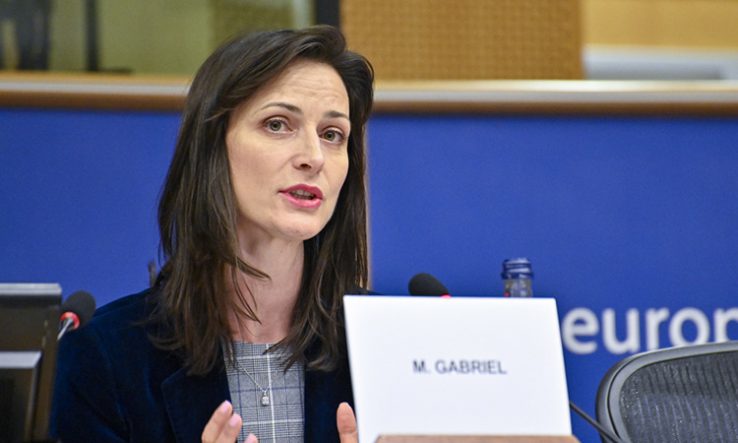
Image: Sebastien Pirlet, European Union 2020
Commission confirms plans for European Research Area and European Education Area
The European Commission has published its plans to reform the European Research Area and the European Education Area—policy initiatives to boost standards and cross-border cooperation.
Research Professional News previously reported on near-final draft plans for the ERA, which launched in 2000, and for the EEA, which launched in 2010. As confirmed in the final versions, published on 30 September, the plans seek to better align the two initiatives, particularly where their goals overlap.
The Commission wants the updated ERA to support researchers’ careers, research commercialisation and a broader spread of excellence, including by:
- Reaffirming the EU target to spend 3 per cent of GDP on R&D.
- Setting a target for public R&D funding to reach 1.25 per cent of GDP, up from 0.81 per cent.
- Creating a voluntary target to pool 5 per cent of national public R&D funding.
- Boosting the R&D spending of countries lagging behind the EU average by 50 per cent over the next five years.
- Boosting research in countries with low participation in the EU R&D programme.
- Developing a code of practice for intellectual property.
- Creating a scheme to support exchange between academia and industry.
- Supporting the development of gender equality plans.
- Increasing citizen involvement in EU R&D.
Hailing the updated policy, research commissioner Mariya Gabriel (pictured) said that “knowledge has no territorial boundaries” and that it is “trusted if there is open scrutiny of its quality”.
With its focus on standards, national systems and personnel, the updated plan for the EEA broadly mirrors that for the ERA, although its means to achieve its goals are slightly more diffuse. The Commission wants the EEA to:
- Promote “closer and deeper” links between universities, with the goal of “seamless” cross-border cooperation.
- Allow for the “automatic recognition of qualifications and study periods abroad”, including short courses.
- Raise quality by promoting mobility and institutional cooperation, as well as broader skills such as critical thinking, entrepreneurship and creativity.
- Improve inclusion and gender equality.
- Enable a “profound change in people’s behaviour and skills” to help make societies and economies greener and more digitised.
Commission vice-president Margaritis Schinas, whose portfolio covers education and values, said the Commission’s vision for the EEA was “deeply rooted in the values of freedom, diversity, human rights and social justice”.